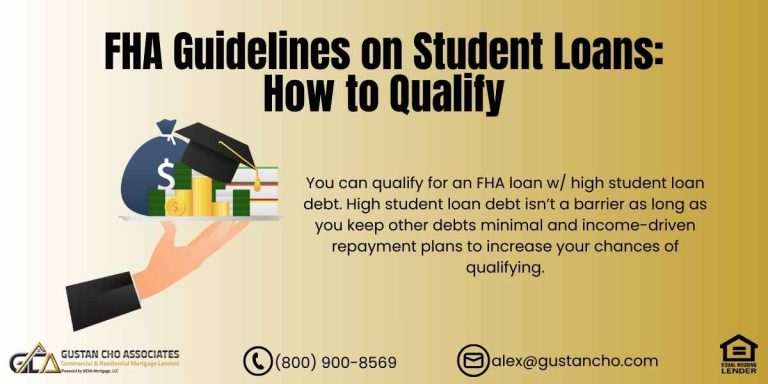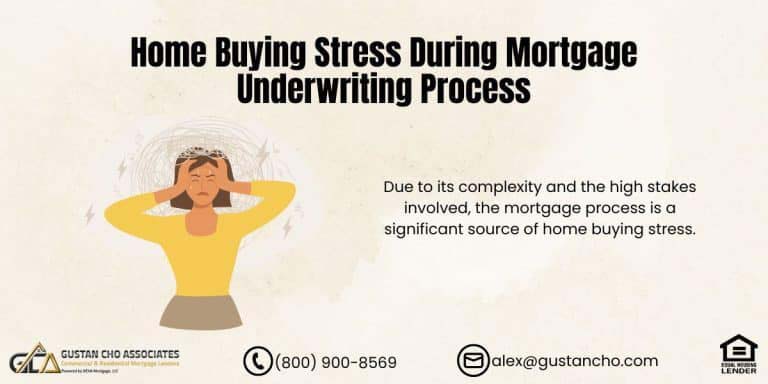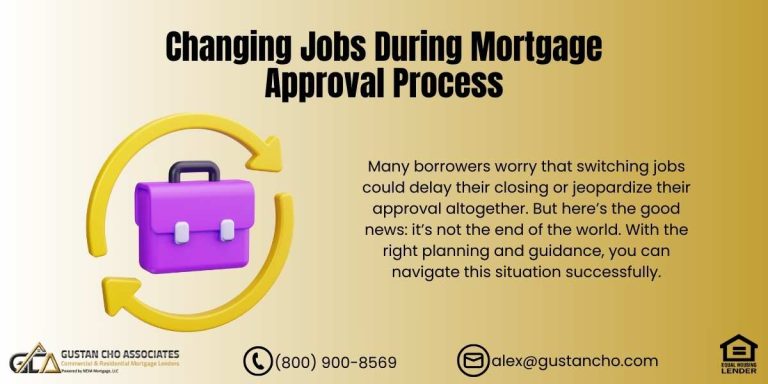In this article, we will cover and discuss when you can get a mortgage approval after bankruptcy dismissal. There are strict waiting period requirements after Bankruptcy on government and conventional loans. Consumers in debt can get the help of the United States Bankruptcy Courts for protection from creditors. Many consumers who file bankruptcy think it is the end of the world and may never qualify for a mortgage. This is not true. Many who have financial hardships normally recover and can become homeowners again. However, FHA, VA, Fannie Mae, and Freddie Mac have a mandatory waiting period after the bankruptcy discharge date
What Is a Bankruptcy Dismissal?
There are consumers who get a bankruptcy dismissal for one or another reason. A Chapter 7 Bankruptcy dismissal rarely happens but it does happen for either the consumer dismissing the Chapter 7 Bankruptcy due to potential bankruptcy fraud or because they just change their minds. There are different reasons for people to get their bankruptcy dismissed. The most common bankruptcy dismissal is a Chapter 13 Bankruptcy dismissal for nonpayment.
Can You Qualify For a Mortgage After Chapter 7 Bankruptcy Dismissal??
Homebuyers can qualify for a mortgage with bankruptcy. Homebuyers can qualify for an FHA mortgage approval after bankruptcy dismissal with no waiting period after the Chapter 7 and Chapter 13 Bankruptcy dismissal if they were timely up to the date of the bankruptcy dismissal. If the borrower was dismissed due to non-payment, there is a two-year waiting period to qualify for an FHA, USDA, and VA loan. If the bankruptcy was dismissed with late payments and/or due to non payment, there is a three year waiting period after the dismissal date to qualify for a USDA loan. There is a four year waiting period after bankruptcy dismissal on conventional loans.
Bankruptcy Dismissed? See When You Can Buy Again
Learn the real mortgage waiting period guidelines after bankruptcy dismissal
Bankruptcy Dismissal Versus Discharge
Bankruptcy dismissal and discharge are two different outcomes in the bankruptcy process. A bankruptcy discharge is a favorable outcome for a debtor. Once a debt is discharged by bankruptcy courts, the debtor is no longer legally obligated to repay it, and creditors are prohibited from taking any collection actions against the debtor to recover the discharged debt. Typically, Chapter 7 and Chapter 13 bankruptcy filers aim for a discharge of their debts after completing their bankruptcy plan.
What Is Better: Bankruptcy Dismissal or Discharge
A bankruptcy dismissal is an unfavorable outcome for a debtor. It occurs when the bankruptcy case is terminated or thrown out by the court without granting a discharge. Bankruptcy dismissals can happen for various reasons, such as failing to meet required deadlines, not complying with court orders, or not fulfilling the bankruptcy plan’s requirements.
When a bankruptcy case is dismissed, the debtor does not receive a discharge, and they remain personally liable for the debts they were trying to address through bankruptcy.
Creditors can resume collection activities, and the debtor’s financial situation remains unchanged. In summary, a bankruptcy discharge is the desired outcome, as it provides debt relief by eliminating most of the debtor’s obligations. In contrast, a bankruptcy dismissal means the case is terminated without debt relief, and the debtor remains responsible for their debts. The specific rules and consequences of bankruptcy can vary depending on the chapter under which the bankruptcy is filed (e.g., Chapter 7, Chapter 13, Chapter 11).
Why Would a Chapter 7 Bankruptcy Be Dismissed?
We often talk about getting a mortgage due to a Chapter 13 Bankruptcy dismissal and not a Chapter 7 Bankruptcy Dismissal. One of the frequently asked questions from homebuyers and bankruptcy attorneys is why would a Chapter 7 bankruptcy be dismissed? Some of the common reasons why a Chapter 7 Bankruptcy would get dismissed is the petitioner voluntarily withdrawing the Chapter 7 Bankruptcy.
When Can a Bankruptcy Trustee Dismiss a Chapter 7 Bankruptcy?
The bankruptcy trustee can dismiss a Chapter 7 Bankruptcy due to the petitioner not properly completing all the pages of the bankruptcy petition, failure to submit the required documents requested by the bankruptcy trustee, or failure to answer to the bankruptcy court or trustee. Another reason for a trustee to dismiss Chapter 7 Bankruptcy is because the petitioner has not completed the Chapter 7 Bankruptcy means test.
Can I Get a Mortgage Approval With a Bankruptcy Dismissal?
According to Kathleen Steffek, a contributing associate editor and underwriter at Gustan Cho Associates, she feels it is best to explain it like this. START with FHA 13 DISMISSAL regardless of the reason. In contrast to a bankruptcy discharge, after which collectors may no longer recover payments, a dismissal occurs when something goes awry and the case cannot continue toward a discharge.
Waiting Period For a Mortgage After Bankruptcy Dismissal
Bankruptcy fraud missed payments, and missed deadlines may cause a Chapter 13 bankruptcy to be dismissed. In some cases, the debtor may choose to opt for dismissal rather than continue with the case. This means the debts are still out there and have to be handled accordingly. There is a two year waiting period on FHA and VA loans after Chapter 13 Bankruptcy dismissal if the Chapter 13 has been dismissed due to non-payment or the Chapter 13.
From Bankruptcy Dismissal to Mortgage Approval
We’ll map out your waiting period, credit steps, and loan options
Can You Get an FHA Loan With a Bankruptcy Dismissal?
The United States Department of Housing and Urban Development (HUD) is the parent of FHA. The Federal Housing Administration (FHA) is not a lender. Its role is to promote homeownership to hard-working Americans by insuring lenders who originate and fund FHA Loans. Homebuyers can qualify for an FHA loan after Chapter 13 Bankruptcy Dismissal if they have been timely with all the payments up to the date of the dismissal and the Chapter 13 has been dismissed voluntarily. The same guidelines apply for VA and USDA loans.
What Is the HUD 4000.1 FHA Handbook?
Lenders need to follow HUD 4000.1 FHA Handbook Guidelines in order for FHA to insure the loans they originate and fund. The HUD 4000.1 FHA Handbook is a comprehensive guide to every guideline on FHA loans. Mortgage Underwriters need to specifically follow all FHA Guidelines in order for HUD to insure loans that default and go into foreclosure. HUD Bankruptcy Dismissal Versus Discharge Mortgage Guidelines are part of the rules and regs lenders need to follow.
Does HUD Allow Manual Underwriting?
The FHA can insure a loan for a borrower after a Chapter 13 discharge if the borrower can meet the following guidelines:
- at least two years have elapsed
- the borrower has re-established good credit and made all payments on time since the discharge date
The same two-year seasoning rule applies to a Chapter 13 dismissal, as of the date it was dismissed. Again, the FHA underwriter must document that the borrower meets all HUD Guidelines.
When To Downgrade To Manual Underwrite on FHA?
If the bankruptcy dismissal has not been more than 2 years a manual downgrade applies to the file. The DE underwriter manually underwrites the loan, generally with more scrutiny. The borrower must submit a letter of explanation regarding the cause for filing Chapter 13 and the reason for the dismissal. Final approval or rejection is at the underwriter’s discretion. The underwriter will review all payments and history for 2 years and the borrower must have made all housing and installment debt payments on time.
Can You Get an FHA Loan With Late Payments?
No major derogatory credit on revolving for the previous 12 months( any 90-day late are majors and 3 or more 60-day late) and for the previous 12 months AND may not have more than 2×30 on all mortgages and installments in the last 24 months. Rule of thumb 0x30x12 and 2 x30 x24 on mtg and installment and no major derogatory tradelines.
Ready to Buy But Worried It’s Too Soon After Dismissal?
We specialize in tough files and borderline waiting period cases
Mortgage Guidelines on Outstanding Collections Accounts
Keep in mind that collection accounts have to be documented with letters of explanation and supporting documentation. It must be consistent with the other credit information in the file and should have a 5% payment in them since they are still collectible. Judgments are resolved or paid off prior to closing (or at closing with documented source of funds)
What is an Extenuating Circumstance For a Mortgage?
HUD does not consider a divorce and extenuating circumstances. It needs to be beyond the control of the borrower. Neither is the inability to sell a home due to relocation or job transfer considered an extenuating circumstance.
VA Loan Bankruptcy Dismissal Guidelines
VA generally follows FHA when it comes to bankruptcy dismissal versus discharge mortgage guidelines. In a nutshell, borrowers can qualify for FHA and VA loans after 12 months of payments during an active Chapter 13 Bankruptcy repayment plan via manual underwriting. There is no waiting period after the Chapter 13 Bankruptcy discharge date to qualify for FHA and VA loans. Any borrowers who have their Chapter 13 Bankruptcy discharge seasoned for less than 2 years need to be manually underwritten. Manual Underwriting Guidelines apply. VA and FHA bankruptcy dismissal versus discharge mortgage guidelines are the same.
Conventional Loan After a Bankruptcy Guidelines
Conventional Loans are called conforming loans. This is because they need to conform to Fannie Mae and/or Freddie Mac Mortgage Guidelines. Conforming Loans are not insured nor guaranteed by any government agency. Why do underwriters make sure conventional loans conform to Fannie and/or Freddie Guidelines? Mortgage Bankers use their warehouse line of credit to originate and fund home loans. However, they do not want to hold the loans they fund for 30 years.
Fannie Mae Waiting Period After Chapter 13 Bankruptcy Dismissal
The role of Fannie Mae and Freddie Mac is to purchase mortgages by lenders so lenders can relieve their warehouse line of credit so they can fund more loans. If home loans do not conform to Fannie Mae or Freddie Mac Guidelines, Fannie/Freddie will not purchase them. This leaves lenders holding the mortgages they fund in their portfolios which is not what they want to do. Bankruptcy dismissal versus discharge mortgage guidelines on conforming loans is not so forgiving.
Can You Buy a House With Derogatory Credit?
CONVENTIONAL is not so forgiving. There is a four-year waiting period after the Chapter 7 discharge date. There is a four-year waiting period after Chapter 7 and 13 Bankruptcy dismissal date to qualify for conventional loans. Only if extenuating circumstances can be documented there may be an exception to be considered by the underwriter.
If extenuating circumstances are considered by underwriters, it is measured from the dismissal date of bankruptcy action along with an approve/eligible only to meet the master contracts that we can sell too
Special Thanks to Kathleen Steffek, Senior Vice President and Underwriting Director at Gustan Cho Associates being the contributing editor on this blog on Bankruptcy Dismissal Versus Discharge Mortgage Guidelines, and Sonny Walton, Senior Mortgage Banker at Gustan Cho Associates for working with Kathleen Steffek to take time out of her busy schedule.
From Bankruptcy Dismissal Date to Clear-to-Close
Let Gustan Cho Associates guide you every step of the way










